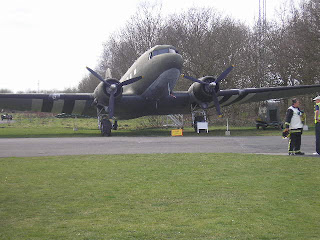More Ghosts of Elvington
Tales of the Unexpected from World War II
Elvington
Small English place, forsaken and apart,
Horizons fogged, whose grey pervades the heart:
And ceaseless winds that speak of days long gone,
And skies that talk of sadness: and no sun,
Where bombers fly and take into the night
Abandoned dreams of happiness and light.
(Extract from’Elvington’ written by Lt.Col. Louis Bourgain D.F.C. Ex-pilot 346 Squadron, Patron of the Yorkshire Air Museum)
The Yorkshire Air Museum at Elvington, near York captures the very essence of a wartime flying station. It reverberates with an atmosphere from long ago days when the Halifax and Lancaster bombers took off on the runway with their pilots and crew flying into the night on their bombing missions. There were too many who never returned. This section of the article is dedicated to all those men….
FROM THE LONDON GAZETTE
Pilot Officer S.E.C. Judd - 77 Squadron
One night in June 1944, this officer was pilot and captain of an aircraft detailed to attack Sterkrade. On the return flight the aircraft was intercepted by a fighter, which attacked with much persistence. In the engagement, Pilot Officer Judd manoeuvred with great skill and finally the attacker was driven off and believed to have been destroyed. The bomber had sustained extensive damage, however, and one wing was on fire. Nevertheless, Pilot Officer Judd set a course in an attempt to reach home. Before the English coast could be reached the fire had spread considerably and Pilot Officer Judd was forced to bring the crippled aircraft down on to the sea, a task he skilfully accomplished. All the crew got safely aboard the dinghy and were subsequently rescued. In the face of most harassing circumstances, this gallant pilot set an example of the highest order. On the night Pilot Officer Judd, his crew and plane were shot down, his parents experienced a curious event. They were asleep at the time and were both awoken by footsteps coming along the gravel path, which led to their house. As they prepared to get up, they heard the doorbell, which kept on ringing. Anxiously wondering who was at their door in the middle of the night, they rushed downstairs to discover there was no-one at their door, nor was anyone in the area at all.
The footsteps and constant ringing of their doorbell occurred at the exact time that their son’s Halifax and crew ditched hundreds of miles away into a very cold North Sea.
Pilot Officer Judd flew on his sorties out of Elvington with 77 Squadron.
Another eerie story that Syd Judd related to a researcher during the day they spent at Elvington occurred in Lincolnshire at a wartime RAF bomber station. During World War II, there would always be an airman in a caravan at the end of the runway. He would be responsible for the aircraft taxiing out on their missions just before take-off.
On this particular night during WWII, the airman in the caravan was very puzzled to see a First World War biplane land on the runway at this airfield. The pilot, dressed in full World War One flying kit, climbed out of the cockpit and walked toward the caravan, where he handed the stunned airman a note, with the number of a specific Lancaster that had taken off on a bombing raid that night. He proceeded to inform the airman that this Lancaster had crashed and all crew were killed. He then left the caravan, got back into his plane and took off. The airman radioed the control tower to give them this information and he was immediately taken off duty and replaced!
Several hours later the control tower received information that this specific Lancaster, as recorded on the paper given to the airman, had crashed and all crew had been killed. The crash had occurred at the precise time of the visit from the pilot in the biplane!!
Another incident was recounted to the researcher by Sqn.Ldr. Blackwell and occurred in the 1970s when he was staying at an old wartime bomber station. One night he awoke and needed the bathroom. Walking along the Officers Mess corridor to the bathroom he saw a fair-haired young man walking towards him and then past him. He was dressed in full World War II flying kit of boots, jacket and helmet. It occurred to him several seconds later that this was rather odd and the next day whilst having a drink in the bar he mentioned it to the other officers, who informed him that this person had been seen by many other officers dressed in exactly the same way. They said that this was someone who had been killed in action during a mission from this flying station.
 This areoplane is a Dakota which you can actually go inside and have a good look around. This plane is where I had my first paranormal experience here. It has only happened the once, and never again.
This areoplane is a Dakota which you can actually go inside and have a good look around. This plane is where I had my first paranormal experience here. It has only happened the once, and never again. 


